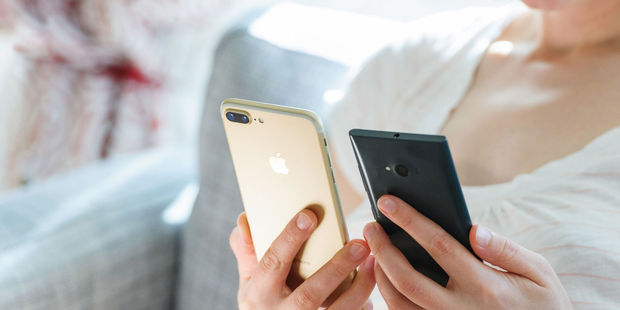Weird science: Android users are 'more honest'
Source: Email Jamie
 Android users are more honest than iPhone users, researchers have found. Photo / 123RF
Android users are more honest than iPhone users, researchers have found. Photo / 123RF
Android users are more honest than iPhone users, researchers have found, in a study revealing what our choice of smartphones say about us.
In a study just published in journal Cyberpsychology, Behaviour and Social Networking, UK researchers gave over 500 smartphone users several questionnaires about themselves and their attitudes towards their mobile phone, then crunched the data they got back.
Comparisons between the two rival operating systems revealed iPhone users were likely to be younger, more extroverted, more likely to see their phone as a status object, more than twice as likely to be women and less concerned about owning devices favoured by most people.
In contrast, Android users were more likely to be male, older, more honest and agreeable, less likely to break rules for personal gain and less interested in wealth and status.
"In this study, we demonstrate for the first time that an individual's choice of smartphone operating system can provide useful clues when it comes to predicting their personality and other individual characteristics," said the study's author, Dr David Ellis of Lancaster University.
And what does it say about your DNA?
University of California scientists have been able correctly predict what people eat, places they've visited, how their health is faring and what hygiene products they use simply by swabbing their phones.
Their study, which featured this month in journal Proceedings of the National Academy of Sciences, could have a number of applications, including criminal profiling, airport screening, medication adherence monitoring, clinical trial participant stratification and environmental exposure studies.
In a previous experiment, researchers constructed 3D models to illustrate the molecules and microbes found at hundreds of locations on the bodies of two healthy adult volunteers.
Despite a three-day moratorium on personal hygiene products before the samples were collected, the researchers were surprised to find that the most abundant molecular features in the skin swabs still came from hygiene and beauty products, such as sunscreen.
In the new study, involving 39 healthy adult volunteers, the researchers swabbed four spots on each person's cell phone and eight spots on each person's right hand, for a total of nearly 500 samples.
"By analysing the molecules they've left behind on their phones, we could tell if a person is likely female, uses high-end cosmetics, dyes her hair, drinks coffee, prefers beer over wine, likes spicy food, is being treated for depression, wears sunscreen and bug spray - and therefore likely spends a lot of time outdoors - all kinds of things," study co-author Dr Amina Bouslimani said.
"This is the kind of information that could help an investigator narrow down the search for an object's owner."
| }
|